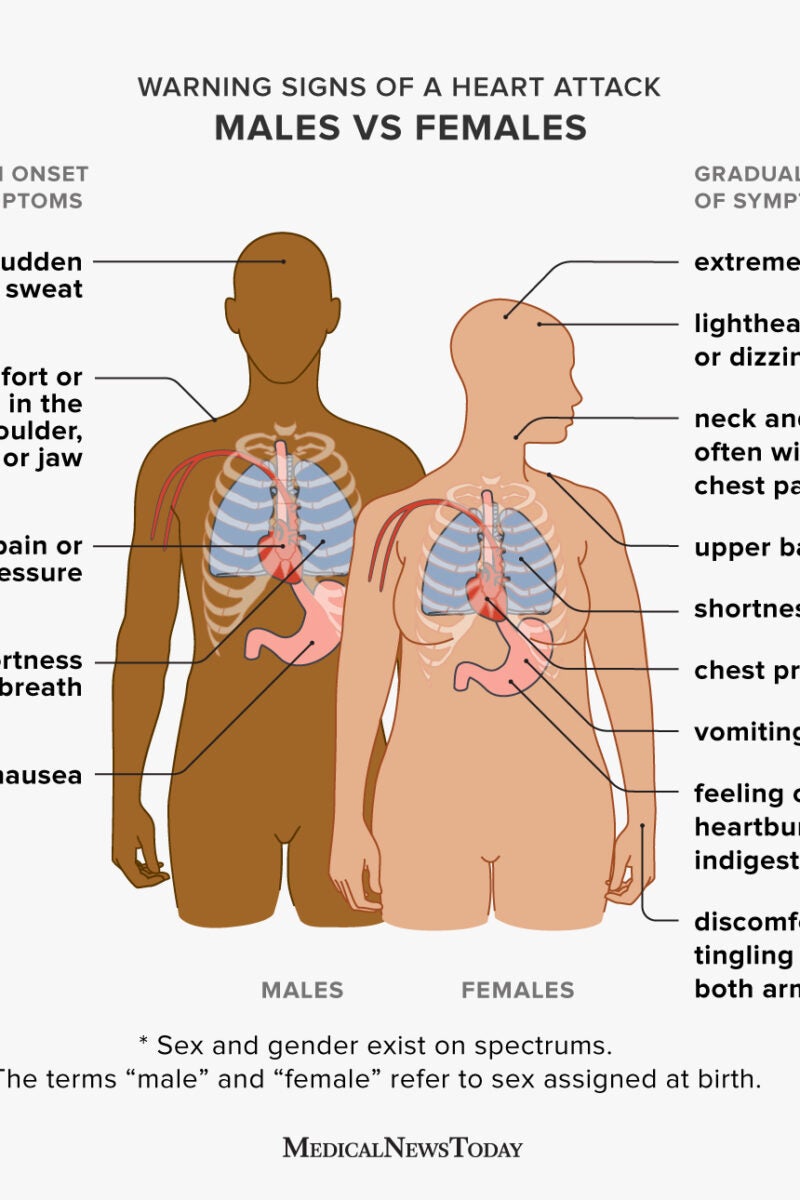Heart attacks in women often present differently than those in men, making it crucial for women to understand and recognize their unique warning signs. Early detection and prompt medical attention can significantly improve the prognosis. This blog delves into the critical warning signs of a heart attack in women, aiming to empower women with the knowledge needed to take prompt action.
Heart disease remains a leading cause of death for women worldwide. Unlike the stereotypical chest clutching often depicted in media, heart attack symptoms in women can be subtle and sometimes overlooked. Understanding these signs is vital for early intervention and treatment.
Understanding Heart Attacks in Women
The Unique Nature of Women’s Symptoms
Research indicates that women frequently experience heart attack symptoms differently than men. This difference can lead to delays in seeking treatment and diagnosis. Recognizing these unique signs is the first step in combating this trend.
Key Warning Signs
Chest Pain or Discomfort
While chest pain is a common symptom for both men and women, women may describe it differently, not always as the classic “elephant sitting on the chest” sensation. It might feel like pressure, tightness, or a squeezing sensation.
Unusual Fatigue
A sudden onset of severe fatigue that cannot be explained by lack of sleep or physical exertion could be a precursor to a heart attack. Women often report feeling tired even after a full night’s sleep or feeling unusually fatigued during everyday activities.
Shortness of Breath
Experiencing difficulty breathing or shortness of breath without exertion is a significant warning sign. Some women report feeling unable to catch their breath while performing tasks that they could easily manage before.
Back, Neck, or Jaw Pain
Pain or discomfort in areas not commonly associated with the heart, such as the back, neck, jaw, or even arms, can indicate a heart attack. This pain can be gradual or sudden and may come and go before becoming constant.
Nausea or Vomiting
Some women experience gastrointestinal symptoms like nausea or vomiting as indicators of a heart attack. These symptoms can easily be mistaken for other conditions like the flu or gastrointestinal distress.
Sweating
Breaking out in a cold sweat without any physical exertion or temperature change can be a symptom of a heart attack in women. This sweating is usually described as stress sweat and occurs without any identifiable reason.
Dizziness or Lightheadedness
Feeling dizzy or lightheaded, especially in conjunction with any of the other symptoms, can indicate a heart attack. Some women report feeling faint or as if they might pass out.
Responding to Symptoms
When to Seek Help
If you or someone you know experiences any of these symptoms, it’s crucial to seek medical attention immediately. Calling emergency services is often the fastest way to get lifesaving treatment.
Prevention and Awareness
Understanding Risk Factors
Certain risk factors increase the likelihood of developing heart disease, such as high blood pressure, high cholesterol, smoking, obesity, and diabetes. Leading a healthy lifestyle and managing these risk factors can significantly reduce the risk of a heart attack.
The Importance of Education
Educating women about heart attack symptoms and the importance of prompt medical intervention can save lives. Awareness campaigns and resources are vital for increasing this knowledge.
For more information on heart health and the warning signs of a heart attack in women, visiting reputable sources such as The American Heart Association and Women’s Heart Foundation can provide valuable insights and guidance.
Heart attack symptoms in women can be subtle and often different from those in men. Recognizing these signs and understanding the importance of immediate medical response can make a significant difference in outcomes. Education and awareness are key to empowering women to take charge of their heart health, ensuring they receive the care and attention needed during critical moments.

